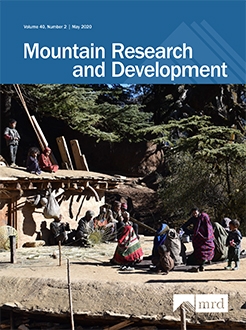Focus Issue: Mountain Biodiversity and Sustainable Development
Editorial (1)
MountainResearch (7)
MountainAgenda (2)
MountainPlatform (1)
MountainMedia (2)

